Flex Dancers and ACLU Present: Know Your Rights in Police Encounters
The ACLU collaborated with THE D.R.E.A.M. RING, a Brooklyn-based dance company known for a style of dance called “flexing,” to make a video about tactics and rights to use during stop and frisk encounters with the police.
Overview
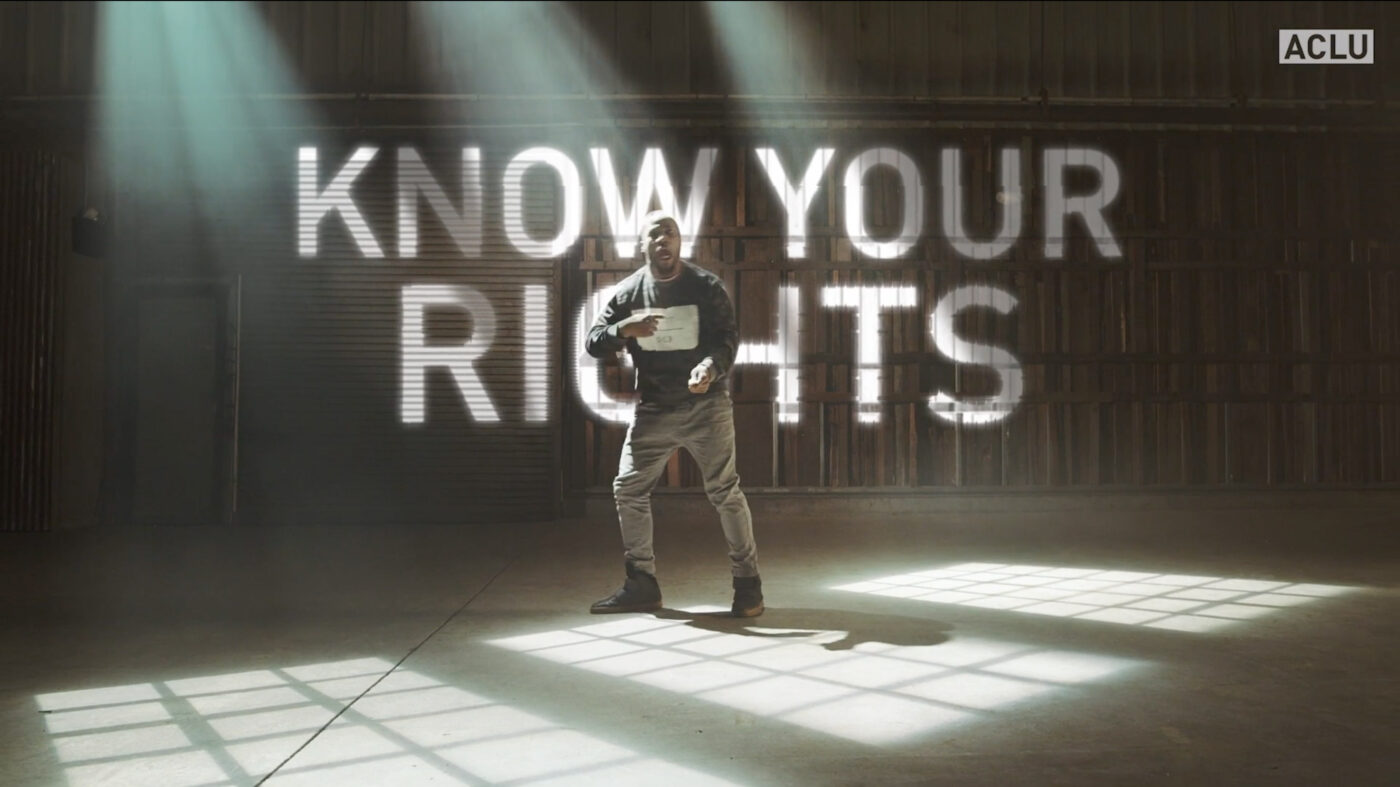
One of the founders of THE D.R.E.A.M. RING, Reggie Gray, said of the style, “Flexing is a means of expression for people who feel like we don’t have a voice.” The style lends itself to communicating the pain and frustrations many dancers have personally experienced in their interactions with police in the Brooklyn neighborhoods where they grew up and continue to live. The kind of stops most of the dancers have experienced, often referred to as “stop and frisk,” is just a way of life for many of the dancers, but knowing how to act and what rights they have during those stops is a critical step in preventing the interaction from escalating.
In their own words with behind the scenes photos from the video shoot:
In their own words with behind the scenes photos from the video shoot:
"Cal" (Calvin Hunt)
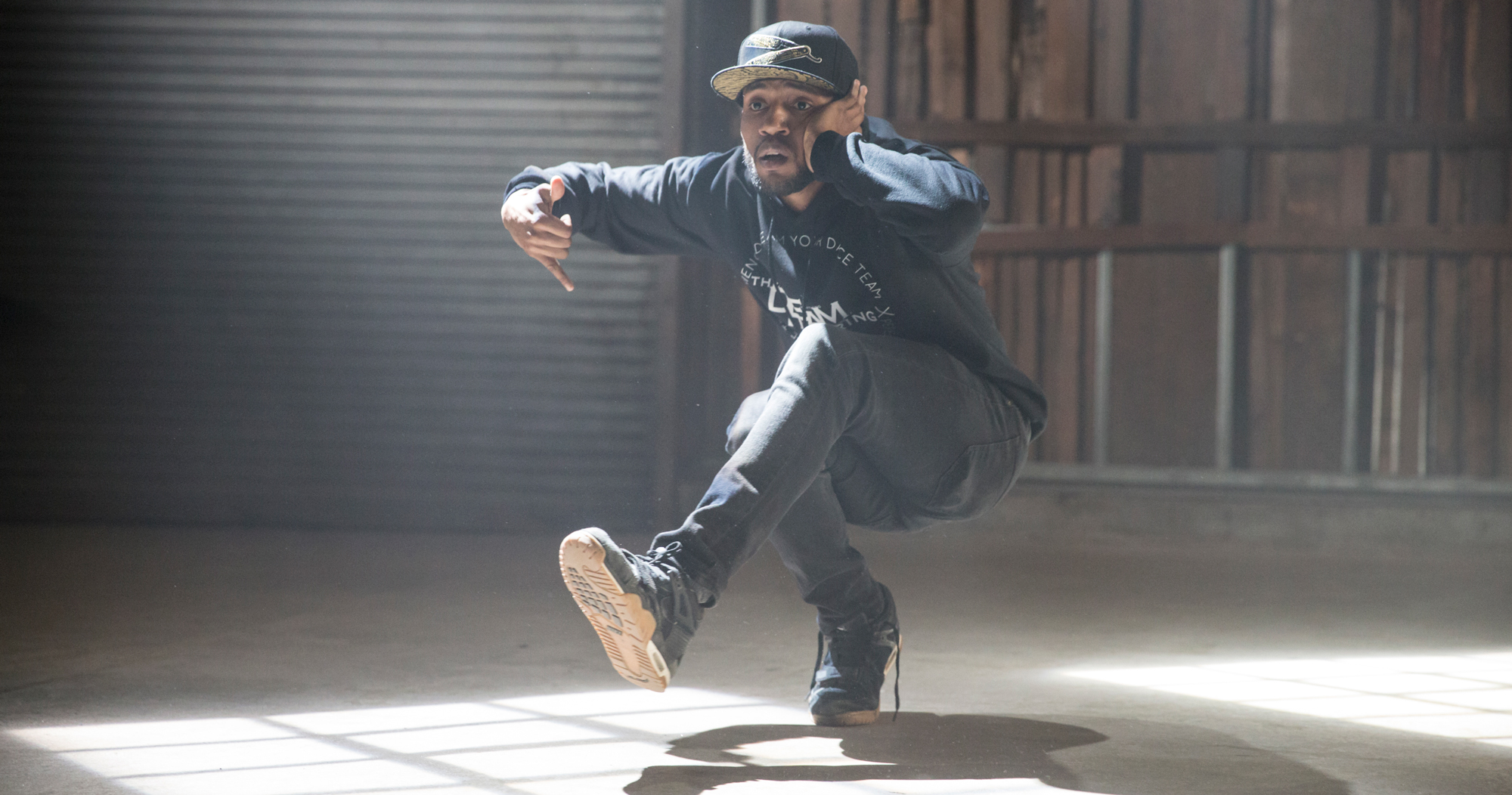
Carol Dragon
"Knowing your rights saves your life."
Flexing, the style of dance we do, can be aggressive and serene at the same time. It gives me the balance to choose exactly what I want to tell you. I can show you, "Okay, I'm pissed off today,” or that one of my friends is in jail. It's a freedom.
I've gotten pulled over too many times for nothing. Before I started dancing full-time, I was in the military and my knowing how to speak to police in a certain way, it always de-escalated it.
One time. I was in Brownsville, coming off of the L train. A detective car slows, and they hopped out on me. I put my hands in front of me, and I told them in a calm voice, "You see both of my hands. You don't have to do anything unnecessarily. I'm not reaching for nothing. But, before you do ask me anything, and I tell you that I don't have to talk to you, my wallet, my ID, my work ID and everything is in my jacket pocket. If you need it, you can ask me to take it out and I'll take it out. No problem."
I knew they were getting ready to put hands on me. But, because I immediately addressed what they were gonna do and I shut it down, it turned them around. If I didn't know to say anything, they probably would have put me on the floor like everybody else that they do it to. Knowing your rights saves your life.
"Slicc" (Derick Murreld)
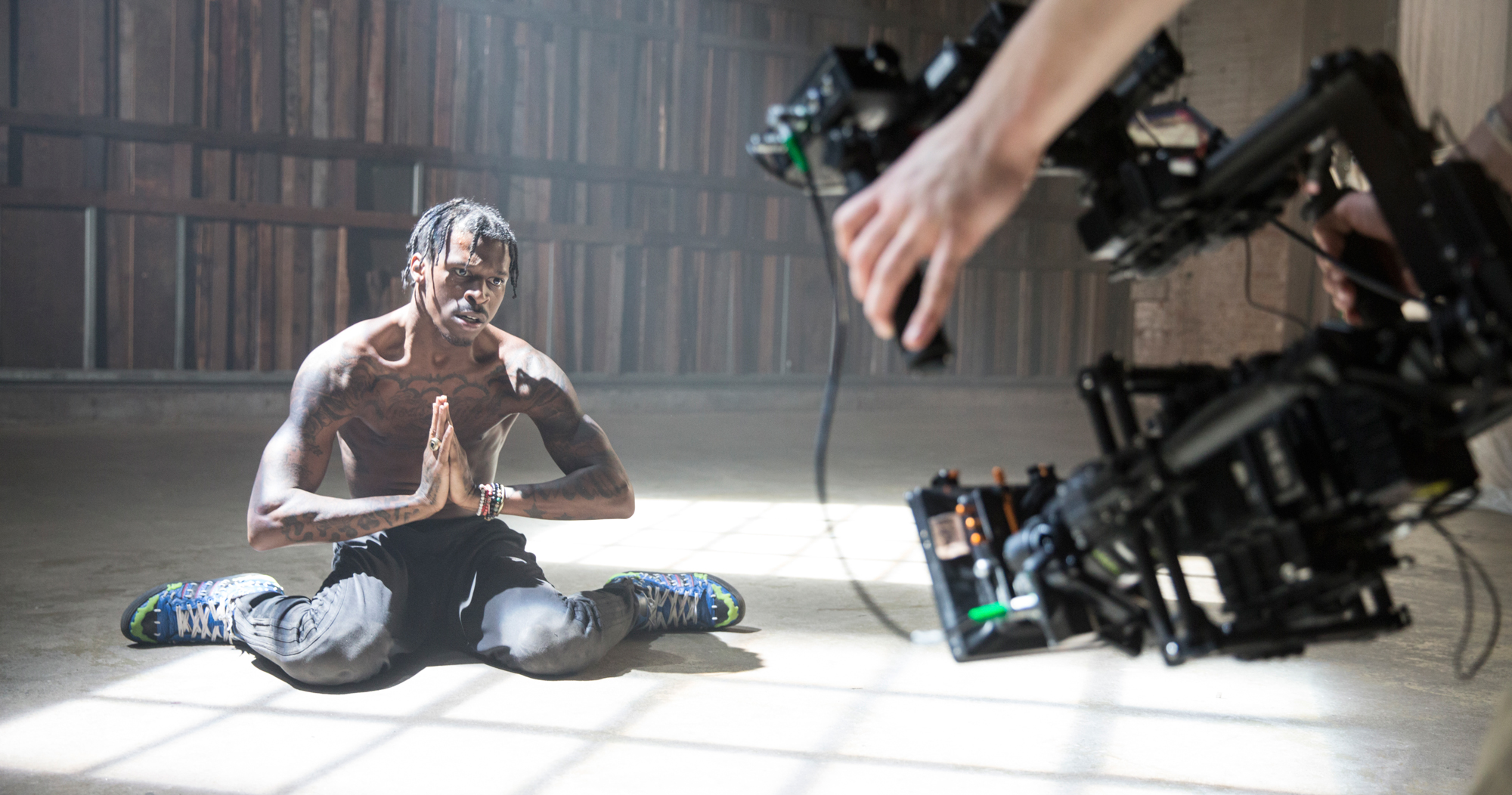
Carol Dragon
"It allows me to be who I want to be, while still being me. It allows me to express myself."
Dancing made me who I am today, my whole energy and character. It was a savior for me when I was actually on the streets. It allows me to be who I want to be, while still being me. It allows me to express myself.
I was once taught as a kid, an educated mind is a free mind. So if you know your rights, you're ahead. If I had known my rights way back, I probably would never have been in trouble.
When you have that knowledge, the cops think, "Okay, now we're not messin' with just some ignorant Black person off the streets now. Okay, he knows his rights. This is one we gotta be careful with now." People wouldn’t have to worry about the cops coming to mess with you.
"Brixx" (Sean Douglas)
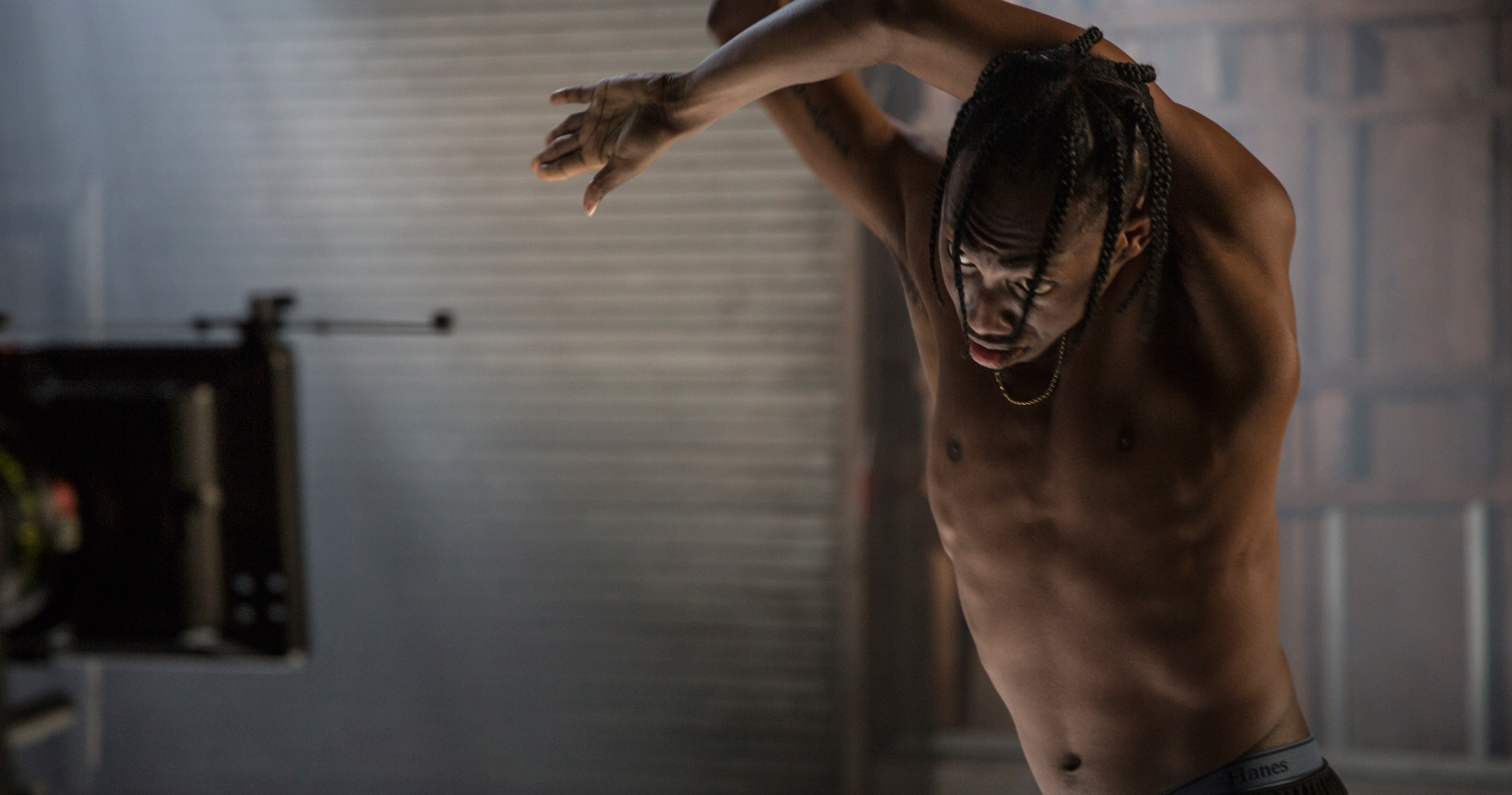
"I felt like flexin’ was a style that I could live with for the rest of my life.
I started dancing when I was about 13-years-old in East New York, Brooklyn. I felt like flexin’ was a style that I could live with for the rest of my life. If you’re feeling a type of way, you can express it. It's a hard knock life in East New York. I'm a person who doesn't really get into trouble. But, you know, the stereotype is that way because of your skin complexion or the reputation in the area.
It's a hard knock life in East New York. It was July 4th or 5th. Firecrackers were booming around the area. I'm walking home from the corner store, my brother and I. Undercover cops were driving past us.
They came out of the car and said, "What are you guys doing?" Searched our bags and told us to go home. People get stopped every day and don't know what to do. You need to know what to do in situations like that. You need to know your rights.
"Banks" (James Davis)
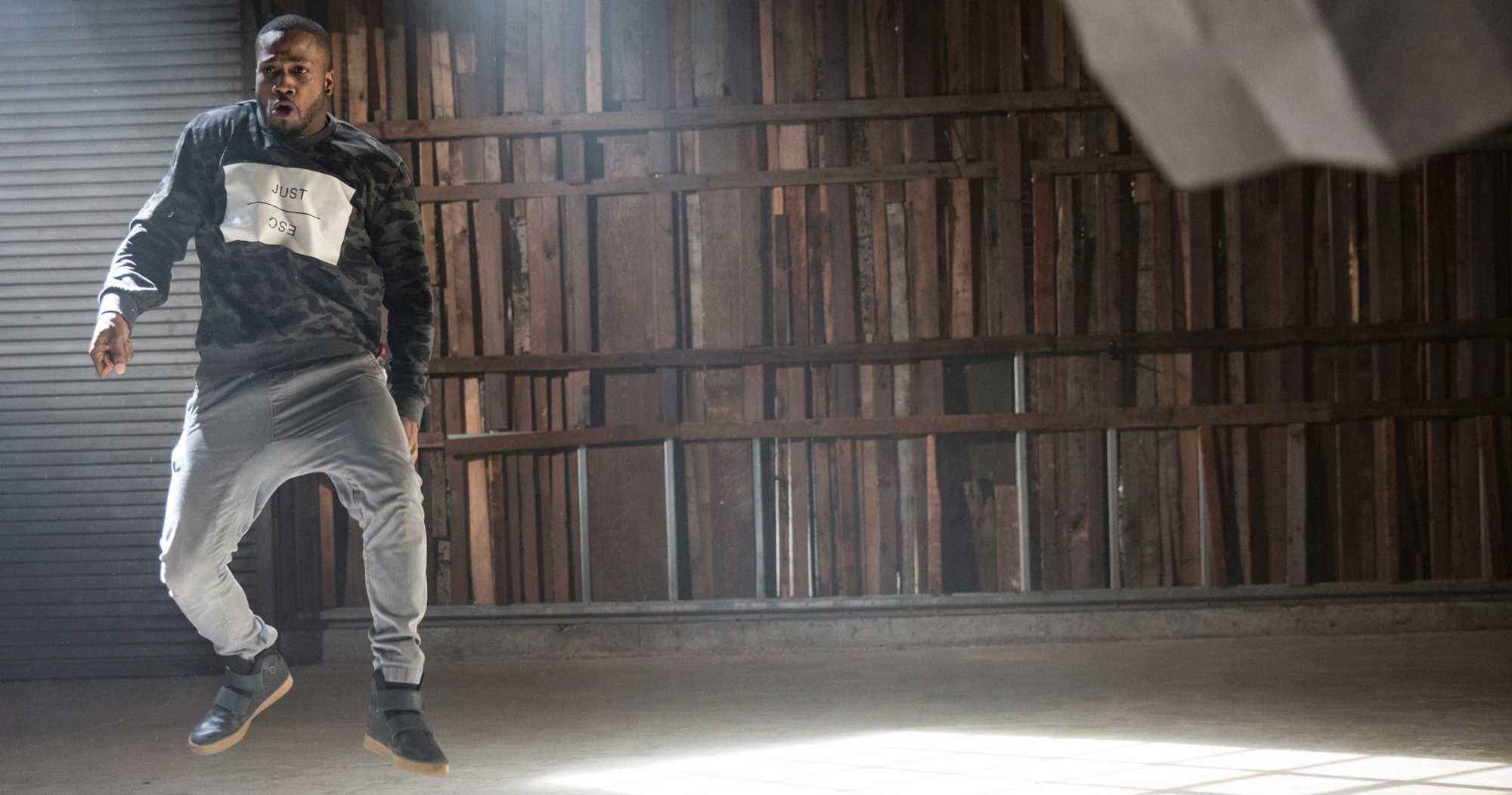
"Just be calm, spit your rights."
Dance is very powerful, and could change a lot of things in the world. The cops, they look at body language. That's the first thing they look at. That's why movement and dance is so powerful. A lot of the situations escalate because people don't know how to act around police officers. Just be calm, spit your rights. What you speak into the world, the world will definitely answer back.
"Klassic" (Joseph Carella)
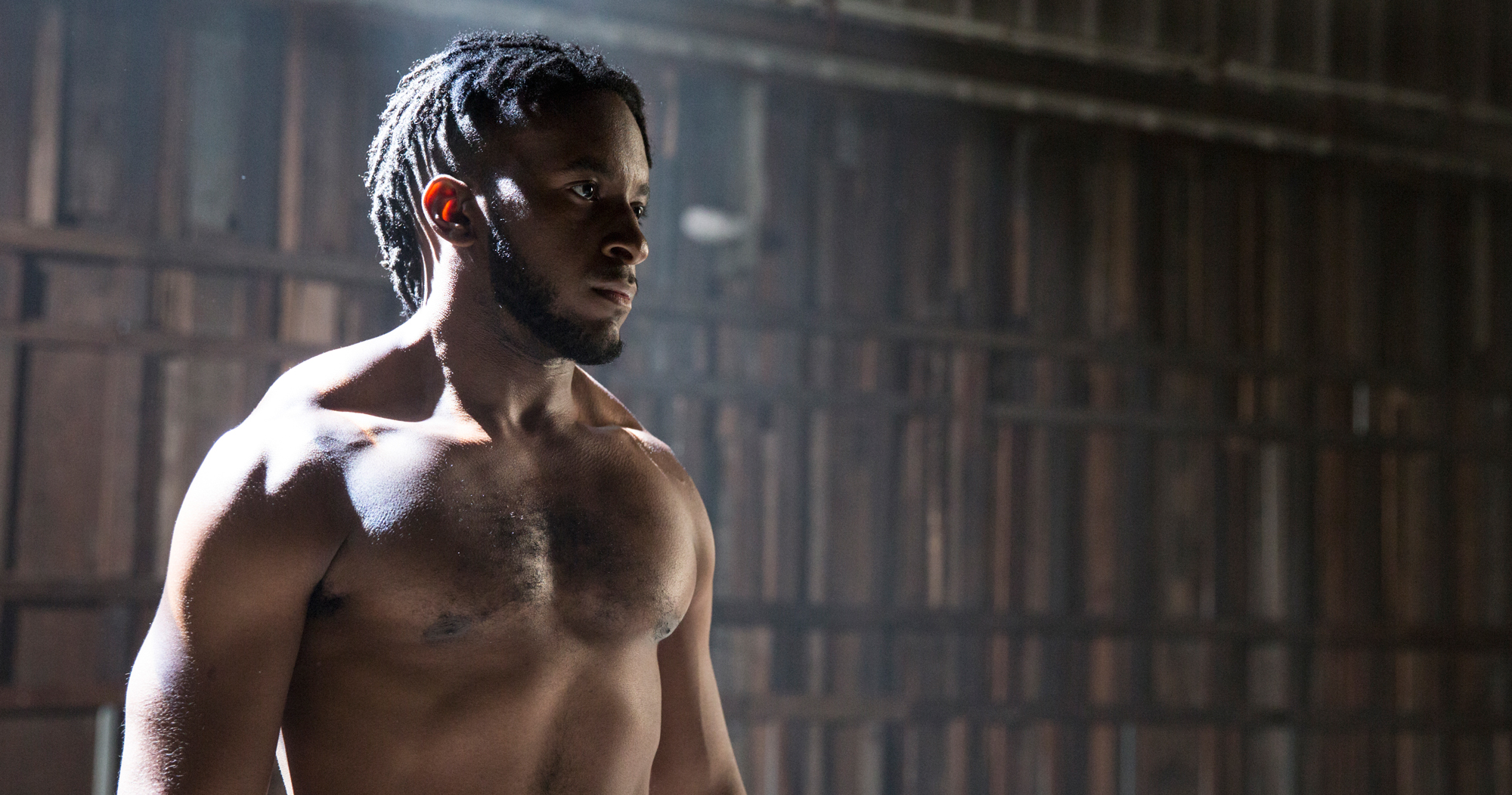
"Knowing your rights is a great deal of power."
Knowing your rights is a great deal of power. If everybody in my neighborhood knew their rights, there would be a lot of changes. Because I was born and raised in Brooklyn, where flexin’ started, I felt a part of me attached to the style. Through my body I was able to express things that I couldn't with my mouth.
I've seen a lot of people in bad situations who didn't know what to do because they didn't know their rights. As an individual, when I go into the street, I feel well equipped knowing my amendments, what I'm capable of, my Miranda rights. Anybody tries to take advantage of me, I know what to say, I know what to do.
"Tyme" Glendon Charles
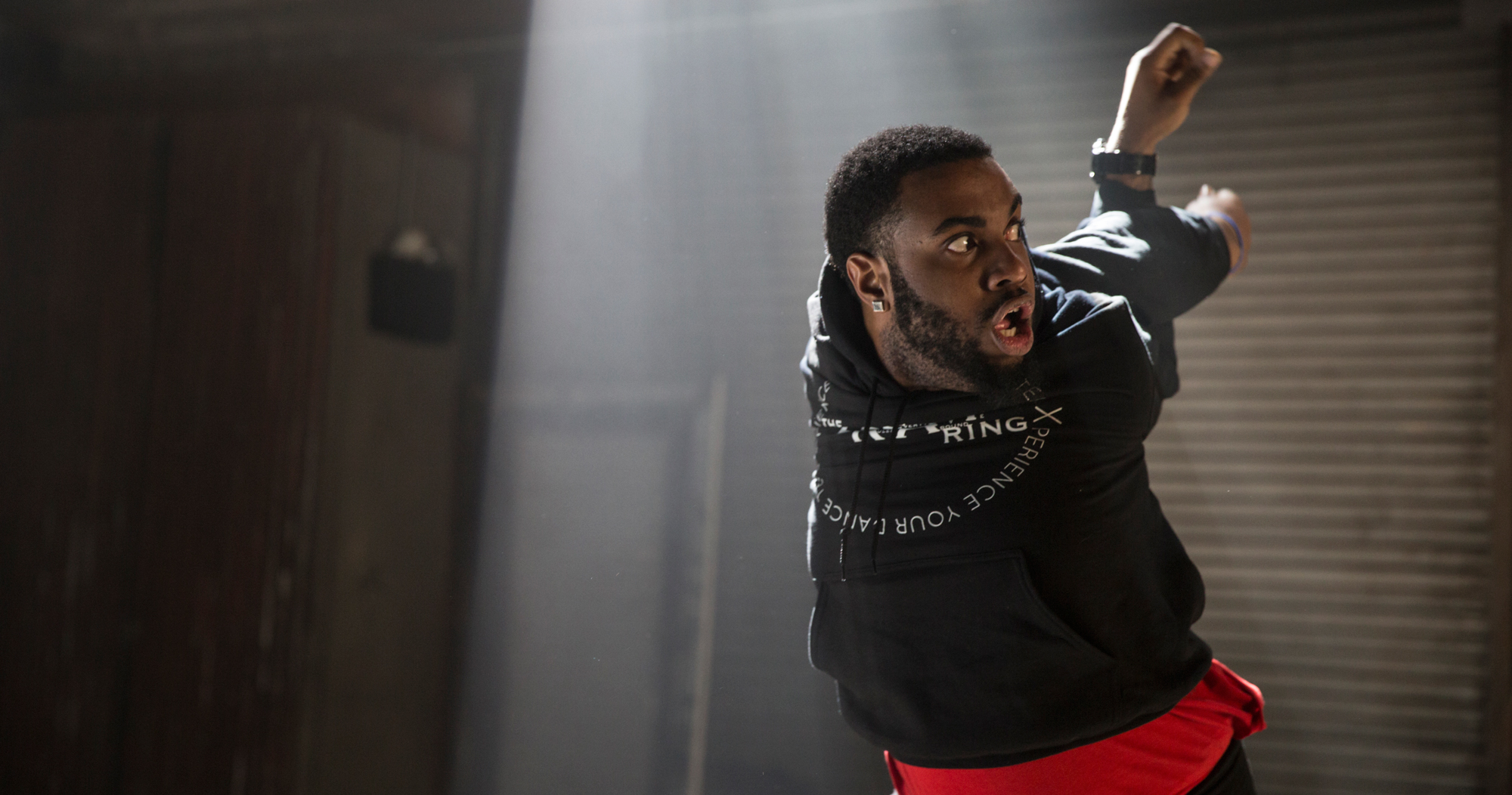
"The most important thing is to make it out. Above all else, stay strong, stay alive."
I actually got into dancing from a talent show, and then we formed a group. They had a protest for Eric Garner, and we went with the protesters and wanted to dance for them. We had a lot of people backing us -- people watching us dancing on the bridge. With flexin', you're actually putting in your pain, your anger, your heartaches, all of that. And you're unleashing that while you're dancig'. It really felt like part of a movement. It really felt like we were making an impact, in that time.
Growing up in Brooklyn, we get stopped by the cops all the time. They lined us up outside in handcuffs. No reason at all. It was routine after a while. It was Crown Heights. They didn't really have to have a reason. I know they assumed that we had guns and drugs on us. Every time they stopped us they would say, "Where's the guns? Where's the drugs?" If I had known my rights, things would’ve went a lot better for us at that time. Because, when you know your rights, the police can tell you one thing, but you can tell whether it's a lie or not.
Talking to my friends and family, especially my siblings, whenever I can teach them, to the best of my knowledge, what I know about my rights. The most important thing is to make it out. Above all else, stay strong, stay alive.
"Dre DON" (Andre Redman)
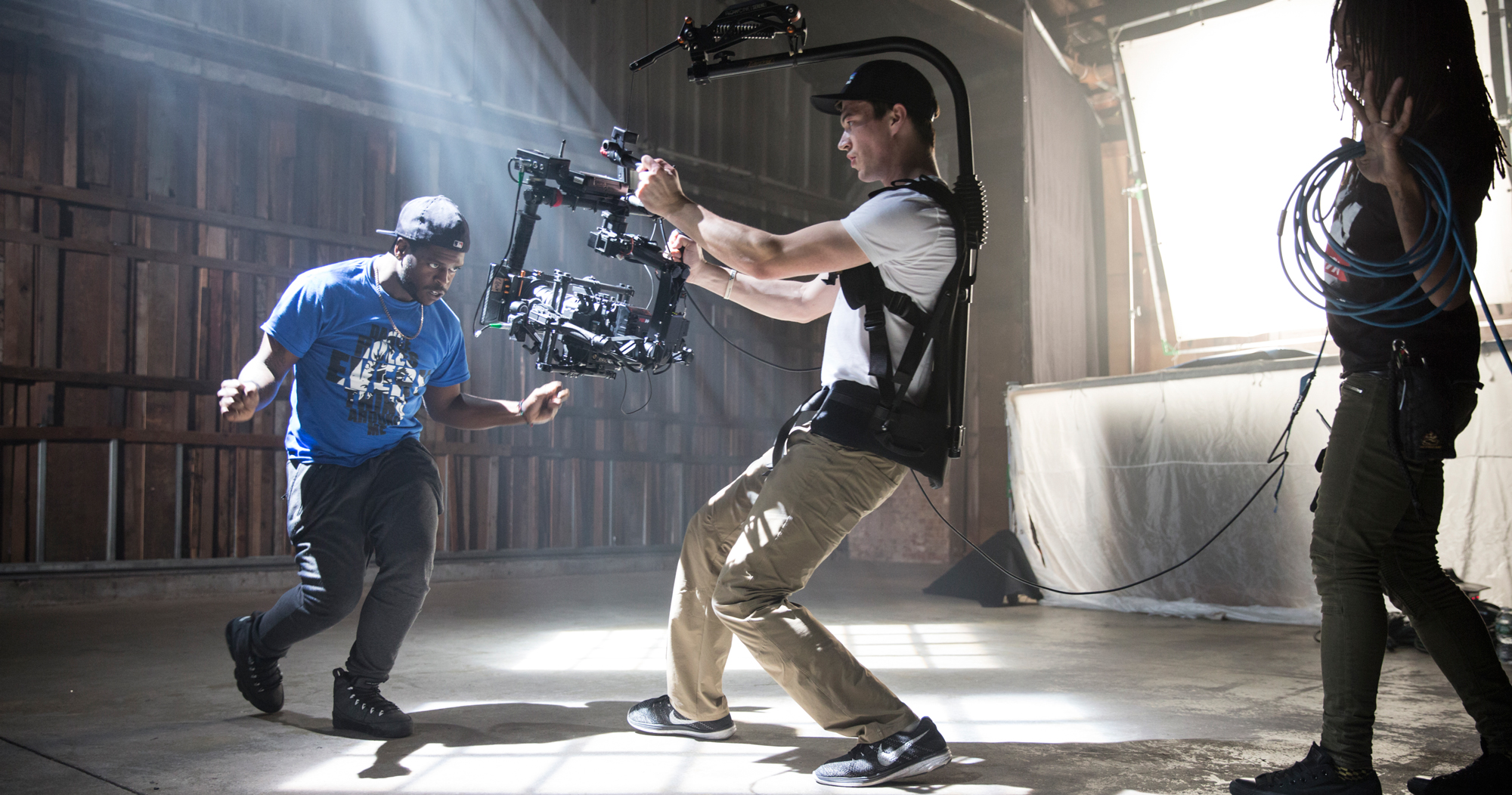
"Dancing helps you get off whatever's on your chest. It’s like freedom of speech."
Dancing helps you get off whatever's on your chest. It’s like freedom of speech. If you can't say it, if you can't talk to the person, you can just put on a song that you can relate to at that moment. Dancing has helped me become more comfortable with myself.
I used to work overnight at FedEx. Before work I would chill with my friends, and I have a hood on. All of a sudden a cop pulls me aside and he's like, "Hey, come here. Where you goin'? Where you comin' from?” I'm like, "Why you didn't pull over the other two people I was with? Why did I just get singled out, as if I did something wrong?" They didn't say anything, they just searched me. And, once they didn't see anything, left. I guess it was probably because of how I looked or how I was dressed at that time.
We try to make sure everybody knows their rights. Like, if we see cops coming, “all right, yo, they can't do this or they can't do that." But, when you least expect it, stuff like that'll happen. I feel like I can't dress comfortably because I'm going be suspected of some type of crime. It happens to me all the time, though. Every time when they see me with a hood on or something, they look at me as if I'm a criminal.
"Shellz" (Shelby Felton)
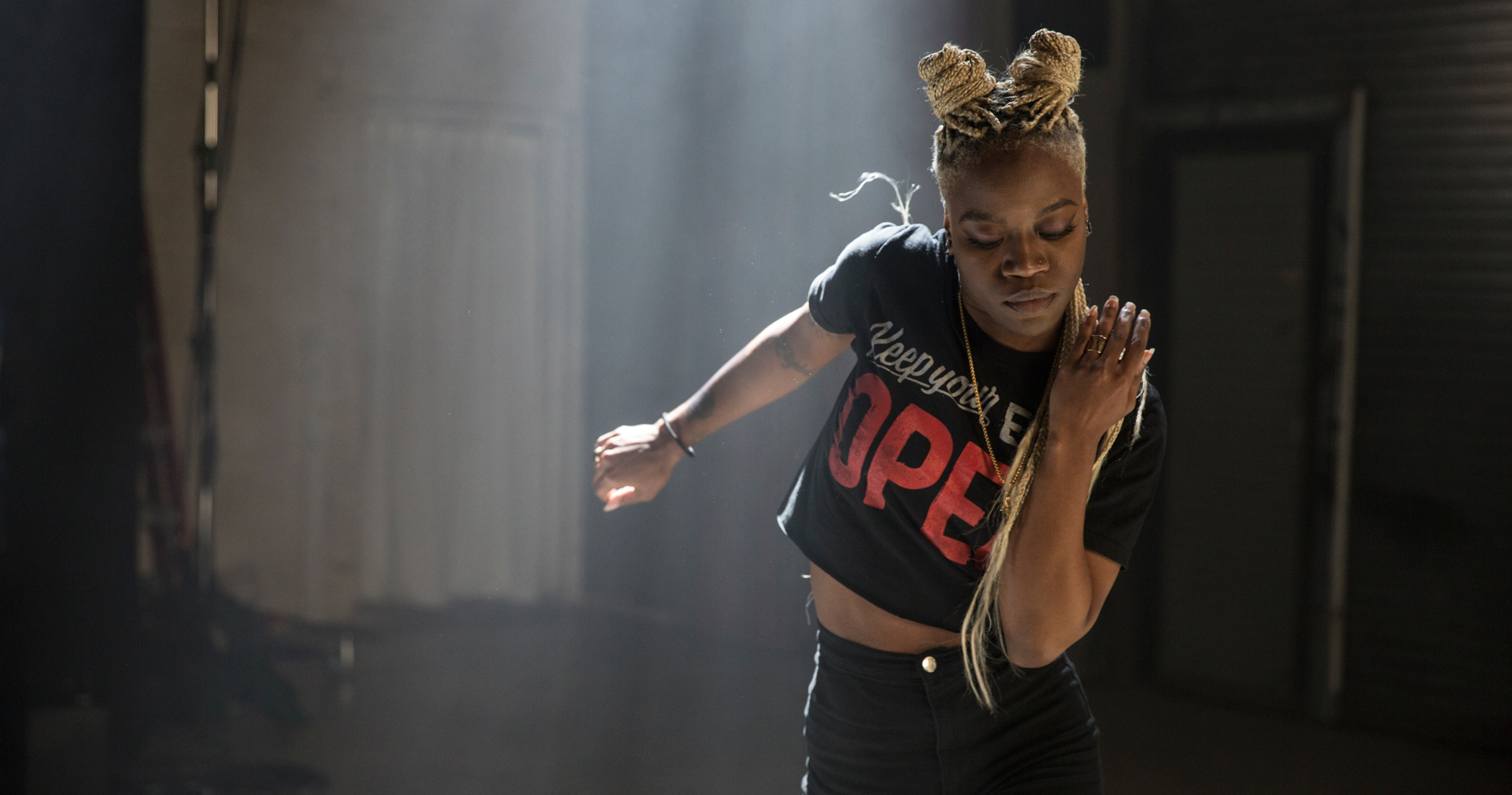
"Once you know something about yourself, and you know how you're supposed to be treated, you cannot be taken advantage of."
To me flexing is about storytelling, along with the excitement in the moves that we do. We all have a story to tell. We deal with situations that we see on the news, or within our community. We want to be able to express that, but sometimes words don't get that across very well. Kids especially don’t tend to cling to words. Once people feel the emotion of us displaying one of our friends getting shot, or someone getting wrongfully arrested, they can understand it. They relate to it much more than if we stood on a stage and said "I witnessed my friend get killed."
I’ve been in cars that were stopped for no reason. We were asked, "Where are you going?" or, "What are you doing?, “Where are you coming from?" And, "Can you raise your hands?" All you wanna do is say, "Can you leave us alone? You know we're just tryin' to go on our way."
You can protect yourself by knowing your rights. People get taken advantage of every day. It's frustrating to be accused of something you know you didn't do, and you not knowing your rights will make it harder for you to prove that. Once you know something about yourself, and you know how you're supposed to be treated, you cannot be taken advantage of.
"Droopz" (Jerrod Ulysse)
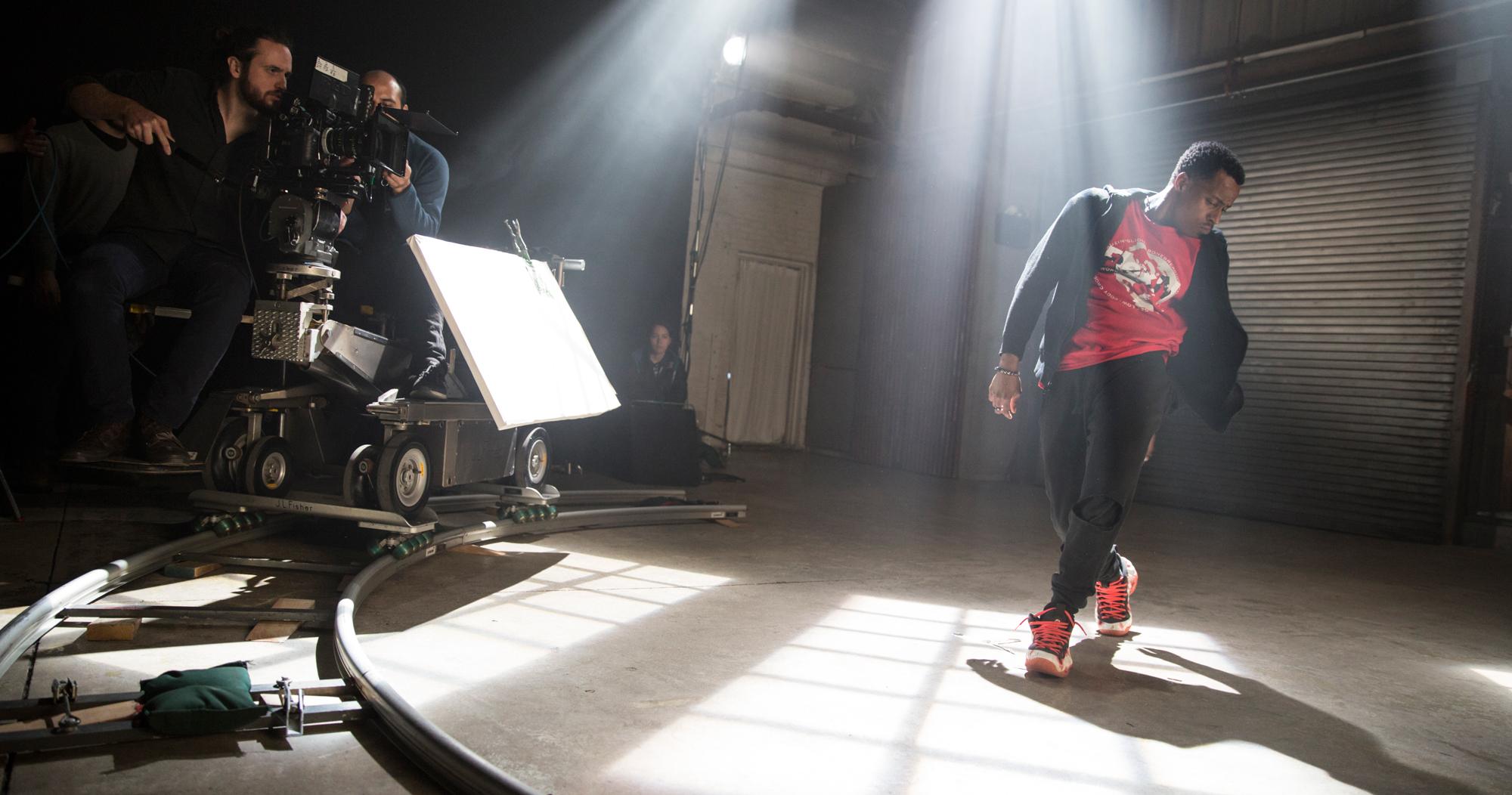
"Once you have those rights, you're somebody."
Flex dancers are people from where I'm from -- otherwise know as “the hood.” But they took that “hood” energy and made something good out of it. And I felt like I could relate to it. Whoever you want to talk to, you could do that with your dancing. It's so beautiful. It's like a perfect connection.
This cop saw me jump on a bus, and said, “You're tryin' to beat the fare." I told him the driver let me on, but he just grabs me up and handcuffs me. He tells me, "Oh, we're just gonna check your name, see if you have any warrants." He searched me pretty rough. I was like, "I thought, you know, by this year they stopped the searching. You can't get searched unless you consent to it." He said, "I didn't search you. I patted you down."
I strongly believe everyone should learn their rights -- they bring you down to equal terms. You knowing your laws and rights will actually make you a better citizen because then you'll know how you want to be treated. Once you have those rights, you're somebody.
Related Stories
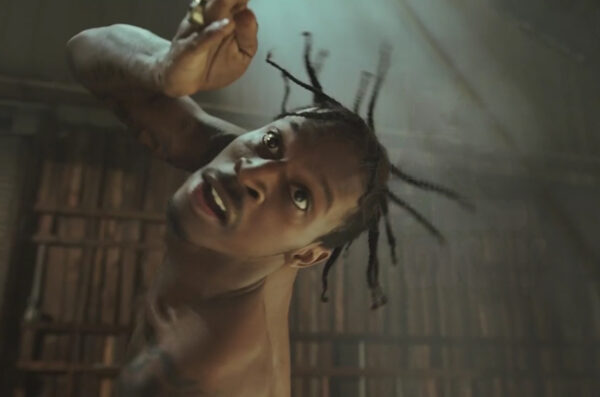
Racial Justice